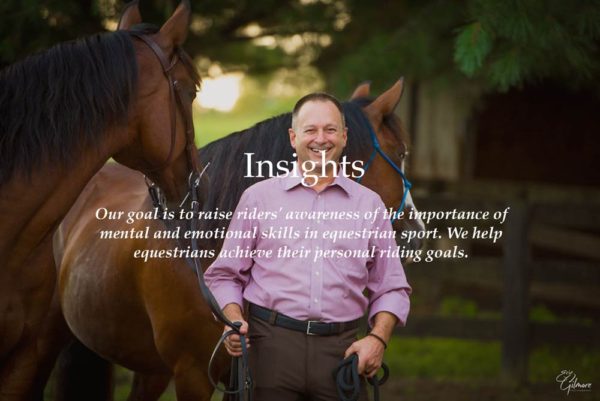WE SUPPORT, CHALLENGE AND INSPIRE EQUESTRIANS
We hope you will enjoy our insights in the forms of Casual Conversations, videos and articles aimed at helping the equestrian transform their relationships with their horses. We are passionate about sharing our knowledge, tips, tricks, and experiences.
A Race to the End Game
I remember back to grad school and my first clients. I was feeling badly one day about one of my first cases and bemoaning my lack of understanding, skill and experience when someone said to me,, “Every surgeon has their first operation.” At the time, I was comforted. However, as time has past, I began to wonder if my taking comfort in that idea went too far. While it is certainly true that we all have to start somewhere, it is also true that we should take the necessary care to develop our understanding, skills, and experience in a way that builds capability over time. That way, when we do our first “surgery,” we are well prepared for success.
Yesterday, Justin and I spend another fabulous day with the trainers and riders at Meadowbrook Stables. After lunch I spent some time with their IEA coach Halle and another instructor Charlotte. We had a wide ranging conversation about coaching, mental skills, emotional growth, and preparation for competition. Their team IEA team is headed for finals and we talked about strategies and techniques to help them effectively cope with the pressure. One of the themes that emerged was the value of small and consistent practices over time. It is great to have tools to use in the heat of competition. But, in order for those tools to be maximally effective, we need to consistently and regularly practice the fundamental mental and emotional skills. Then, when we need them, they are ready to go.
As we worked with the riders during the day on connection through the reins and bit. I reflected on how essentially important it is that our equine partners understand what we are trying to communicate. We ended up talking about it in a way that was very similar to the conversation about mental preparation. In order to develop that communication, we need to work on the small things in a consistent way to build and then refine our relationship with our horses through the bit, as well as their understanding of all the aids.
I would be the first to acknowledge the value of experience, experimentation, and play; engaging the world at the cutting edge (or just beyond) of our knowledge and skill. At the same time, I am also concerned that in our race to the end game, we often skip over the fundamental understandings and abilities that allow us to be successful when challenged. In the world of horses, we end up with teams that can accomplish the competitive task but, suffer behaviorally, physically, or mentally because of a shallow foundation. In the world of humans, we end up with people who are struggling mentally or emotionally with the stress of competition because they jumped over the development of core coping and regulatory skills.
I hope you will join me in resisting the temptation to race to the end game. Let us commit to the thoughtful and consistent development of ourselves and our relationships with our horses. ~ Paul
PC – @eringilmorephotography
#fundamentals #equestrian #equestrianlife #sportpsych #equestriansportpsych #equstriansportpsychology #foundationforperformance

“I’ll Give You Something to Cry About” and Other Amazing Parenting Techniques
As I settled in to my coffee and dog snuggling this morning, I saw the following meme in my feed.
“Some of you came from the ‘If you stop crying I’ll buy you something’ generation. We came from the ‘If you don’t stop crying, I’ll give you something to cry about’ generation. They are not the same.”
The reality is that these “generations” share way more in common than they are different. Sure, the bribe seems indulgent and somehow less violent than the threat of emotional violence or force. Yet, both statements are centered on the disdain for, and lack of tolerance, of tears. Both represent directed efforts to control another’s emotional experience and expression.
These attempts at emotional control do not foster regulation in our children any more than bribery or threats of violence will calm the frightened, worried, or highly anxious horse. At best, these strategies create a moment of distraction or compliance. At worse, they foster aggressive entitlement or shut down, distrust, and anger.
I would like to believe that the majority of people these days would not punish a horse for being afraid, if only because their experience taught them that it doesn’t work. In the same breath, those in the R+ world warn against mistimed or misapplied reward schedules (bribery) because that can lead to dangerous behaviors in the horse. Why then do we glorify the same strategies when we are raising children or teaching our students. How is it that these two “generations” have convinced themselves that their strategies are desirable or that they even work?
Imagine if we shifted our focus from controlling the emotions of others to helping them regulate their own experience. Imagine if we approached our horses, our children, and our students with compassion, empathy, and acceptance while focusing our energy on helping them regulate themselves. Certainly, we would set limits that would keep them and ourselves safe. At the same time, we would provide a calm, consistent, and connected presence that has been proven through both science and experience to foster resilience and self-regulation. Isn’t that what we really want after all? ~ Paul
PC – @eringilmorephotography
#resilience #sportpsych #copingwithstrongemotion #equstrianlife #equestriansportpsychology #powerofconnection

Vortex of Being: Ripples in the Universe
The summer before I started graduate school, I spend many afternoons siting in the hospital with my namesake and grandfather, Paul Kern. He had bone cancer and his body was dying. That summer was the most beautiful and excruciatingly painful time of my life. There were quiet times of shared silence. Times where I reread our favorite Louis L’Amour westerns aloud. Times when I comforted him in his pain. TImes where I shed silent tears of grief.
We lost Vortex this weekend. We first met him as he flew off a stock trailer with several other Nokotas fresh off the plains of North Dakota back in 2014. He had a presence and energy that was wild, vibrant and pure. He Joined our herd several years later. His relationship with Justin in the years that followed is Justin’s to tell. What I can say is that Vortex lived up to his name. Not as a destructive force. Rather, a collector of the world’s energy, organizing it in a clear and powerful way. He was a central spirit in the whole herd, human and horse alike.
I watched Vortex and Justin grow their relationship. We talk a lot about complex systems and opening channels of communication. I got to watch that happen in real time as Vortex taught Justin and Justin stumbled his way forward. In the end, their relationship was a beautiful thing to watch. And, when I watch Justin with young or confused or frightened horses, I can see the echo of Vortex in him.
It is one of my greatest honors to channel the quiet, patient, and loving spirit of my Grandfather, to share his spirit with others so that they might experience the same loving acceptance I experienced as a child and young man. We aspire to honor Vortex in the same way, to share his gift of organizing the energy of our relationships and make meaningful ripples in the universe. ~ Paul
#SportPsychology #equestriansportpsych #Equestrian #grief #loss #vortex #spiritguide
PC – Erin Gilmore Photography

Fluid Dynamics
When I was in college, I had a math professor, Fr. Dobbins, who was equal parts challenging and inspiring. He would assign homework that no mere mortal could complete on their own. Then he would offer a three to four-hour study session every week to work through the material as a group. On the first exam I took with him, I earned 27%, which turned out to be the second-highest mark in the class. He would say, “Anyone can memorize procedures and theorems. I want to know how you can apply the principles to novel problems.”
I would like to say I appreciated his approach back then, but I would be lying. However, in reflection, it taught me some valuable lessons. First, it gave me both experience and confidence in tackling problems I had never encountered before. Second, it taught me how to work with others to solve the novel problems I faced. Problems that I could not solve on my own. I honestly think these may have been two of the most important lessons I learned in college. As I write this, I realize that I have carried this story and experience with me and have been able to draw on it when I’ve felt stuck or faced seemingly impossible odds.
I am grateful that Fr. Dobbins was the only professor that taught higher level Calculus. If I’d had a choice, I am certain I would have switched out of his class after that first semester with him. As it worked out, I had the privilege of being his student for Calculus III, IV, V, and VI. I remember in the last semester with him. He kept encouraging me to pursue advanced study in fluid dynamics or the study of how liquids and gases flow. Otherwise known as “modeling chaos.”
I chuckle to myself when I think about my career and how much of what I do with riders and horses involves finding ways to understand the turbulent and chaotic; and to then work toward bringing predictability and order to our experience and our relationships with our horses.
Father Dobbins passed away in 2008. I like to think he would be proud of my work and how I strive to embody and share the lessons that he taught me in those study sessions so many years ago. I think he would love the process I engage in with my clients where, together, we tackle the novel problems of their lives and horsemanship journeys.
I will end today with this thought—If we can effectively resolve 30% of life’s novel challenges on our own with no help from others, that is pretty darn good. For the other 70%, we can be successful when we work together with a supportive team or community.
I encourage you all to build an amazing “study group” to help you through the tough times.
~ Paul
PC -Erin Gilmore/ Erin Gilmore Photography
#Equestrian #sportpsych #equestriansportpsych #sportpsychology #equestrianlife #Community #creatingcommunity #Resilience #resourcefulness

A Teacher’s Struggle
The health of any system relies on the health of all its parts. I recently joined a FaceBook group for riding instructors. As I looked through the posts I was touched by the very real struggles that they are faced with on a daily basis. The reality in the current equestrian world is that riding instructors almost always wear multiple hats. They are often required to be competitors, accountants, bookkeepers, marketing specialists, vet techs, mechanics, landscapers, paralegals, counselors, and diplomats in addition to their role as riding instructor.
With this challenging job description, it would be easy to be seduced into thinking that teaching is the easy part, I was remembering back to my first time teaching. Right after college I taught at Catholic Memorial High School in Boston. One class in particular, Conceptual Physics (Physics without numbers), was particularly intimidating for me. I remember walking into class the first day only to be confronted with a good chunk of the football team. I am smiling at this memory. They actually sat in formation with the offensive line in the front row, the receivers on the wings, and the quarterback and running backs in the second and third rows. Keep in mind that I was 21 years old, 5’8”, 155 lbs, and looks about 12.
It was everything I could do that year to muster enough confidence to connect, lead, support, and teach those students. I remember the advice of the veteran teachers saying that it will take 3 to 5 years before it would be “easy.” I am forever grateful for all the support that I got from my peers. Some mentored me in the art of teaching. Others provided the powerfully important sense of community and personal emotional support.
There has always been a lot of talk in the equine industry about the lack of standards and training for riding instructors. Appropriately, the focus is often on fundamental knowledge of horses and riding. Many certification programs are discipline specific and capture the skills and progression unique to that discipline. What I have also noticed, and I feel drawn to address, is the lack of resources for instructors to understand how their students learn, how to effectively deal with the broad array of personalities and the strong emotions that frequently arise in this challenging sport. In addition, there are few supports for riding instructors themselves.
If the health the health of a system (equine industry) relies on the health of all its parts. It only makes sense to support the personal growth and development along with the emotional health of the industry’s most valuable resource, the riding instructor. Our team at Riding Far are actively working to develop resources that support the riding instructors and would welcome your thoughts and ideas about the best ways we can do that.
To all the riding instructors out there who are doing their best to bring up the next generation of horsemen and horsewomen, we value you… let us know how we can support you.
~ Paul
PC -Erin Gilmore/ Erin Gilmore Photography
#Equestrian #sportpsych #equestriansportpsych #sportpsychology #equestrianlife #Community #creatingcommunity #teachingskills #instructoreducation #horseinstructor #teaching #artofteaching

Creating Community
Earlier this week I ran across a quote that really got me thinking. It is a quote from a German Lutheran pastor, theologian and anti-Nazi dissident Dietrich Bonhoeffer and it goes like this, “The person who loves their dream of community will destroy community, but the person who loves those around them will create community.” It has been floating around in the back of my consciousness ever since. It both inspires and challenges me on many levels.
Recently, Riding Far has invested in serving riding instructors and trainers by sharing our knowledge about how people learn, effective teaching practices, and helpful ways of dealing with strong emotions in ourselves and our clients. One of the essential elements of teaching and learning is creating positive learning environments. We love Timothy Clark’s Four Stages of Psychological Safety and use it as a basis for our work. It starts with inclusion safety and then moves to through safety to learn, safety to contribute, and safety to challenge the status quo. I wonder if Bonhoeffer’s reference to loving those around us is his way of creating psychological safety. An essential element of a healthy community is that it is a psychologically, emotionally, energetically, and spiritually a safe space.
When Justin and I started building Riding Far, we talked a lot about not wanting it to be a cult of personality. We have made conscious choices to build our business as a values based organization. One of our core values is our own personal growth and education. We love to share our knowledge, insights, and skill. If what we teach and share is helpful, we are delighted because we also value each and every clients’ personal growth and education. However, we are not invested in anyone doing it “the Riding Far way.” Rather, we value individuality, compassion and empathy, and the dignity of every horse and rider. We are invested in people finding their own way forward, a path that brings joy and well-being to riders and horses alike. I wonder if this is what Bonhoeffer meant by “loving those around them?”
Riding Far is currently searching for our next home. These transitions always come with challenges. But, as is always the case, each challenge presents an opportunity. One of the many opportunities in this transition is that we will likely have a facility that is wholly dedicated to our program. This is incredibly exciting, but at the same time we recognize our responsibility. We will have the responsibility for creating a culture that elevates psychological safety and fosters healthy community. We rely on you to help us guard against the kind of hubris, self-importance, and love of our own vision that Bonhoeffer warns will destroy community.
With love and respect… Paul
PC – Erin Gilmore Photography

TURN INSIGHT INTO ACTION
THIS IS MORE THAN YOUR TYPICAL SPORT PSYCHOLOGY OR HORSE TRAINING.
We have dedicated ourselves to create transformative experiences for riders and horses through compassionate and expert education, mentorship and guidance. We meet every rider and horse where they are and create deeply personal and meaningful experiences.



